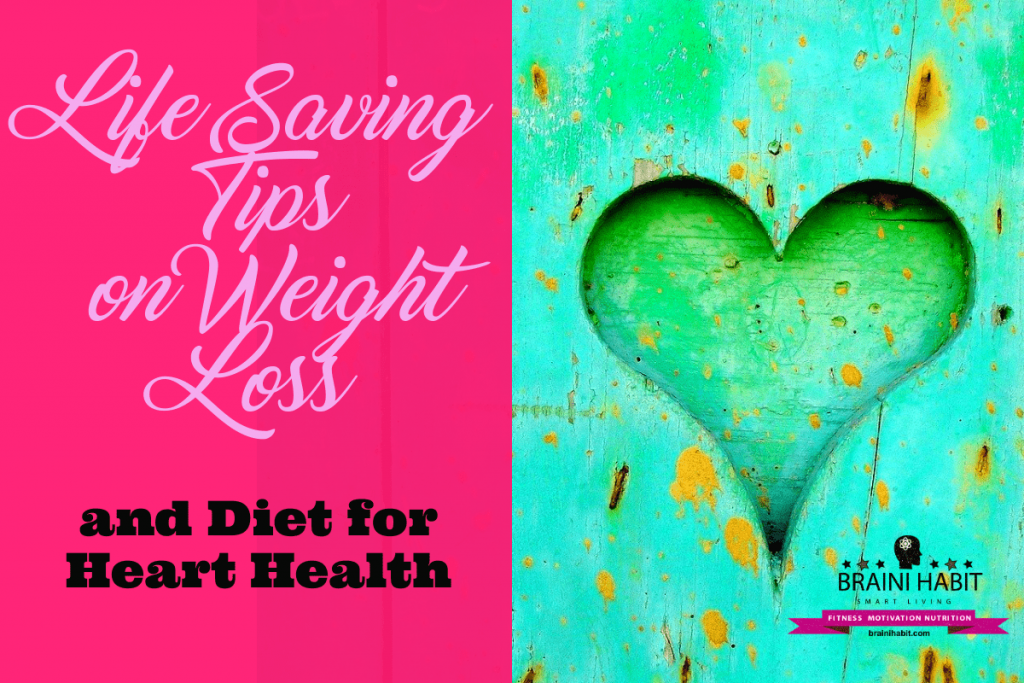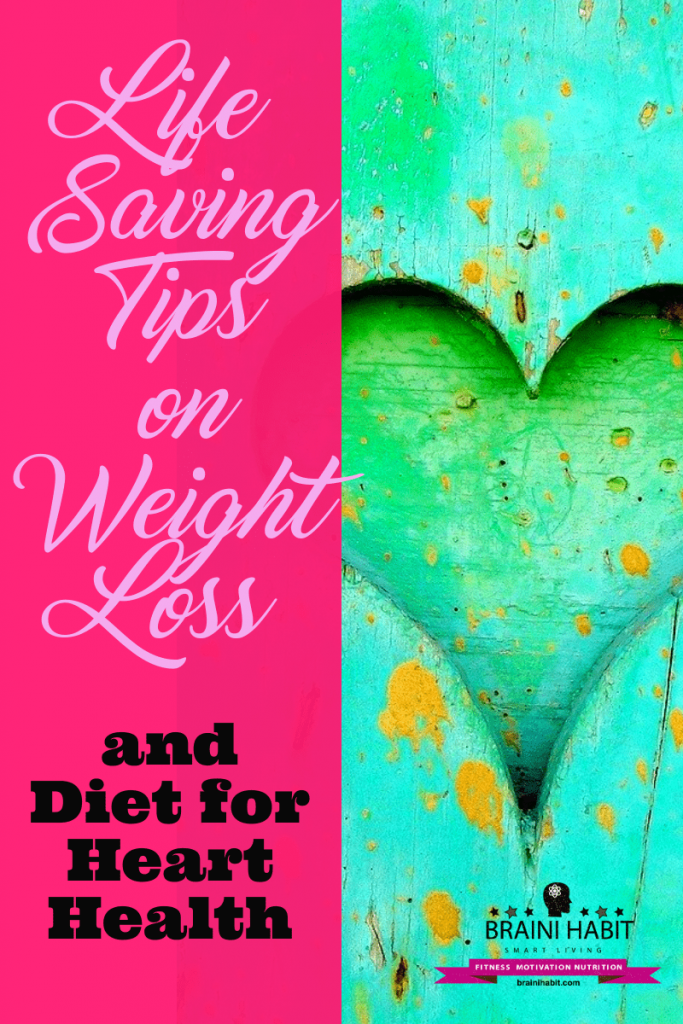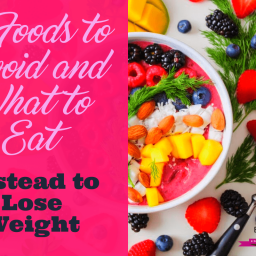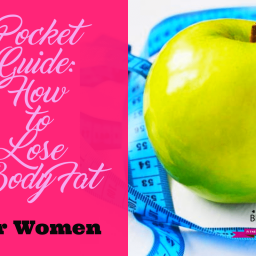Many people have the notion that obesity is just a cosmetic problem.
But that is far from the truth, as it a complex medical problem that is associated with other health issues like diabetes, certain cancers, and heart diseases.
What this means, therefore, is that the more you weight, the higher your risk of developing heart disease and other health conditions.
Dieting, which is one of the most effective ways to address obesity can also help reduce the risk of one having heart disease.
In this article, we are going to be looking at some health food that can help reduce the risk of heart diseases.
Before we jump into that, we are first going to take a close look at obesity and heart disease.

- What exactly is obesity?
- What causes obesity?
- Poor lifestyle choices
- Health conditions associated with obesity
- Weight loss is the best way to decrease the risk of a heart disease
- The making of a heart-healthy diet
- 2 types of fat you must cut out of your diet
- Heart-healthy food for obese people looking to improve their heart health should eat
- The bottom line on tips for weight loss and heart health
What exactly is obesity?
Obesity is a complex condition in which a person has an unhealthy amount of body fat. It doesn’t just make one look sloppy but also increases the risks of developing several health conditions.
The excess body fat not only strains the organs and bones but also increases the risk of inflammation. Even more, it may even cause drastic changes in metabolism and hormone.
A person is regarded as obese when his body (BMI) index is at or above 30. Here is an online calculator that can help calculate your BMI. Using the calculator isn’t as difficult as you are probably thinking. The only data you need to input is your weight and height.
According to a report from the CDC, 93.3 million Americans are obese (1).
The world health organization estimates that there are about 650 million obese adults around the world.
There are a plethora of reasons why a lot of people are obese today. Everything from a personal diet to inherited factors can have a drastic impact on a person’s weight.
Note that not all obese people have a chronic health problem. But, it does increase the odds of them developing some of them.
Take away
People whose Body Mass Index is at or above 30 are regarded as obese. Obesity is linked to health conditions like- heath disease and stroke, just to mention a few.
What causes obesity?
While factors like genetics, hormonal and metabolic issues affect our body weight, obesity usually occurs when one consumes more calories than they burn. Our body stores the excess calories as fat.
Below are some of the main causes of obesity
Poor lifestyle choices
Inactivity – People who like to sit around all day or have a sedentary lifestyle are more likely to consume more calories than they burn.
Liquid calories– Sugared beverages and alcohol can contribute to weight gain as they have very high-calorie content. Unlike food, you can down large quantities of them without feeling full.
Eating unhealthy food– A diet that is lacking in low carb vegetables, fruits, and protein, but high in carbs, fat, and sodium can contribute to weight gain.
Medical condition
Some people are obese because they suffer from health conditions like Cushing syndrome. Medical condition like arthritis, which can limit movement, can lead to weight gain.
Other factors
Everything from stress, pregnancy, microbiome, lack of sleep, and genetics can also cause obesity.
Take away
Obesity occurs when we eat more calories than we burn. Factors like genetics, pregnancy, and stress can also cause obesity.
Health conditions associated with obesity
Below are some chronic health conditions obese people are prone to.
Stroke
Stroke is a health condition that occurs when the body fails to supply blood to the brain. It can cause severe damage to brain tissues, which can result in everything from language impairment and disabilities to changes in reasoning and thinking.
After a review of 25 studies, researchers found that obese people have a 64% chance of having a stroke (2).
Certain cancers
Obesity can increase the odds of one having breast, kidney, prostate, colon, gallbladder, uterus, ovaries, and endometrium cancer.
One study estimates that 28,000 cases of cancer reported in 2012 in the US were associated with obesity (3).
Depression
Studies have found a correlation between depression and obesity (4).
Because obese people are often discriminated against because of their size, they usually have low self-esteem and lack self-worth. In the long run, this may lead to depression.
Heart disease
Heart disease is very common among obese people. The fatty deposit that has accumulated on the arteries over time may prevent the steady supply of blood to the heart.
As the arteries narrow, the risk of having a heart attack increases.
Take way
Heart diseases, stroke, depression, and certain cancers are only a handful of the health conditions associated with obesity. Weight loss can help prevent some of them.
Weight loss is the best way to decrease the risk of a heart disease
To reduce the risk of you having heart disease, you have to lose those excess pounds.
As you likely know, weight loss isn’t only about working out, eating right is equally important.
With the right exercise routine and diet, an obese person can lose weight and become less likely to develop heart disease.
Research has shown that one can reduce the risk of having a heart attack and other health conditions by reducing their weight by 10 percent with regular exercise and a healthy diet (5).
The American Heart Association recommends that obese people looking to lose weight should reduce the amount of trans fat and saturated fat they consume (6).
To further reduce the risk of developing heart disease, obese people need to avoid degrading habits like smoking. Even more, they have to talk to a health care professional about lowering their cholesterol and normalizing their blood pressure.
Take away
Weight loss is by far the best way to decrease the risk of developing heart disease. To lose weight, you have to eat healthy food and exercise regularly.
The making of a heart-healthy diet
According to one study, one-third of all deaths that occur globally are linked to heart-related diseases (7).
To keep your heart healthy, you have to make healthy lifestyle choices, exercise regularly, and eat heart-healthy food.
Bear in mind that no single food can magically improve your heart health.
A heart-healthy diet is built around food rich in protein and fiber not unhealthy snacks, sugared soft drinks, or processed food.
2 types of fat you must cut out of your diet
Truth be told, not all fats are bad. Polyunsaturated and monounsaturated fats, for example, are good for the body and can reduce your cholesterol levels. Another type of fat that is good is omega 3 fatty acid.
Trans fat
Transfat, which is found in fried and baked food are bad, as they can raise your cholesterol level, which in turn, will increase your risk of developing health conditions like stroke and heart attack.
Saturated fat
This is a type of fat mainly found in red meat, dairy products, and tropical oil. Obese people should consume them sparingly to reduce the odds of developing heart disease.
Take away
Obese people should cut out fried, baked, and sugary food from their diet as they are loaded with trans and saturated fat. Their diet should be rich in protein and fiber.
Heart-healthy food for obese people looking to improve their heart health should eat
Whole grains
Whole grains are made up of 3 nutrient-rich parts which are- the endosperm, germ, and barn.
Quinoa, brown rice, barley, oats, buckwheat, and rye are common types of whole grains.
Whole grain is somewhat better than refined grains as it is rich in fiber, which can help reduce cholesterol levels as well as the risk of heart disease (8) (9) (10).
After analyzing 45 studies, researchers came to the conclusion that consuming 3 or more servings of whole grains can reduce the risk of heart disease by 22% (11).
Other studies have shown that eating 3 servings of whole grains can reduce the risk of one having stroke by 25% (12).
Before purchasing whole grains, carefully read its ingredient label. If you come across phrases like whole wheat or whole grain, then you can be sure that it is whole. If, on the other hand, you see words like multigrain or wheat flour, chances are it isn’t whole grain.
Take away
Studies have shown that eating 3 or more servings of whole grains can help reduce the risk of heart disease and stroke. Be sure to check the label on whole grains before making a purchase.
Berries
Berries are excellent nutrient-packed food that can improve heart health.
Some great berries you can add to your diet are raspberries, strawberries, blueberries, and blackberries.
Research suggests that berries are rich in antioxidants that can help prevent inflammation and oxidative stress, which may lead to the development of heart disease (13).
Several studies have shown that eating berries can help reduce the risk of one having heart disease.
For example, one study conducted a while back found that eating blueberries regularly can help control blood pressure and improve the effectiveness of the cells that line the blood vessels (14).
Another study found that eating strawberries can help reduce LDL cholesterol, which is linked to heart disease by 11% (15).
After the careful analysis of 22 studies, researchers came to the conclusion that eating berries can help reduce body mass index, LDL cholesterol, and blood pressure (16).
Therefore, berries are a great addition to any heart diet as they are delicious and loaded with antioxidants like anthocyanin.
Berries may also help improve heart health due to their low-calorie content.
Take away
Berries are loaded with important antioxidants that our body needs. Several studies have shown that eating berries can help reduce the risk of heart disease.
Leafy green vegetables
Collard green, kale, and spinach are popular leafy green vegetables.
Because they are packed with vitamins, antioxidants, and minerals, they are a great addition to a healthy diet.
Studies have shown that leafy green veggies are loaded with vitamin K, which can encourage proper blood clotting and protect the arteries (17 18 19).
They are also rich in dietary nitrates, which can help reduce blood pressure and prevent arterial stiffness. Even more, they can improve the effectiveness of cells that help line the blood vessel (20).
Several studies have found that eating more leafy vegetables can help reduce the risk of heart disease.
For example, an extensive study in 29,689 women showed that consuming large portions of leafy green vegetables on a regular basis can help reduce the risk of coronary heart disease (21).
An analysis of eight studies found that increasing one’s intake of green vegetables can lower the risk of heart disease by 16% (22).
Take away
Studies have shown that consuming more leafy green vegetables can help reduce the risk of heart disease. Because they are rich in nitrates and vitamin K, they can help improve arterial function and reduce blood pressure.
Fatty fish
Fatty fish like tuna, sardines, and mackerel are rich in omega 3 fatty acids.
Eating them a couple of times a week can help prevent factors that cause heart disease.
This can be seen in one study were participants ate salmon 3 times weekly for 8 weeks. At the end of the 8 weeks, the participant’s diastolic blood pressure decreased drastically (23).
Research suggests that reducing the amount of fish you consume weekly may increase the chance of you having one of the factors (high blood pressure and diabetes) that cause heart disease by 19% (24).
If you are not into seafood, you can take fish oil as an alternative, as it is equally rich in omega-3 fatty acids.
Studies have shown that fish oil supplements can help improve arterial function and reduce blood pressure and triglycerides (25) (26) (27) (28).
You can take algal oil and krill oil as an alternative to omega 3-fatty acid.
Take away
Fatty fish are rich in omega 3 fatty acids and can help reduce the risk of one having chronic health problems like blood pressure and cholesterol that can lead to heart disease.
Beans
Beans is a protein-rich food that offers a lot of health benefits.
Studies have shown that the resistant starch in beans can improve heart health by reducing cholesterol and triglycerides (29) (30) (31).
Many other studies have found that consuming beans can reduce the risk of some factors that cause heart disease.
For example, the participants of one study who ate pinto beans experience a significant decline in LDL cholesterol and triglycerides (32).
Also, a review of 26 studies found that a diet rich in beans can help reduce LDL cholesterol, which can cause heart disease (33).
According to this study, eating more beans can help blood pressure, which is a factor that can cause heart diseases.
Besides reducing the risk of heart disease, beans can also help improve gut health (34).
Take away
Beans is a protein-rich food that is loaded with resistant starch, which can lower blood pressure, reduce inflammation, and cholesterol. Studies have also shown that beans can improve gut health
Walnut
Walnut is rich in important micronutrients like manganese, magnesium, and copper that can improve our overall health. It is also a great source of fiber (35).
What most people don’t know is that it can help improve heart health.
Research has shown that adding walnuts to your diet can help reduce the risk of some factors that cause heart disease.
This can be seen in one study were 365 participants experienced a significant decrease in their LDL cholesterol after incorporating walnut to their diet (36).
Another study found that eating walnuts can reduce LDL cholesterol by 16%. The study also found that it can decrease inflammation and diastolic blood pressure (37).
Other studies also found that people who eat walnuts regularly have a lower risk of heart disease (38) (39).
Bear in mind that you don’t have to overeat it to experience the benefits it offers.
Incorporating a few servings of it to your diet can improve your heart health significantly.
Take away
Studies have shown that walnut is a nutrient-packed food that can help improve your health and reduce the risk of you developing heart disease. Adding a few servings of it to your diet can go a long way in preventing blood pressure and inflammation that can cause heart disease.
Dark Chocolate
Dark chocolate is an excellent food choice for people who are prone to developing heart disease, as it is rich in flavonoids, which is an antioxidant that can help improve heart health.
Several studies conducted over the years have brought to light the benefits associated with eating chocolates.
For example, in one study were participants ate chocolate 5 times weekly found that chocolate can prevent heart disease. The participants of the study who ate chocolate had a 57% lower chance of developing coronary heart disease (40).
Eating chocolate twice a week can reduce the risk of having plaque in the arteries by 32%, as can be seen in this study.
The fact that dark chocolate can improve heart health doesn’t mean you should overeat it.
Bear in mind that some chocolates are high in calories and sugar, which can lead to obesity.
So, to get the most out of dark chocolate, you have to eat it sparingly.
Take away
Studies have shown that dark chocolate can help reduce the risk of developing coronary heart disease. To enjoy the benefits it offers, you have to eat it moderately.
Tomatoes
Tomatoes are rich in lycopene, which is a powerful antioxidant (41).
Antioxidants can improve heart health as they can effectively neutralize dangerous free radicals and prevent inflammation and oxidative damage.
Research suggests that tomatoes can help prevent a decline in the amount of lycopene in the blood (42) (43). As the lycopene in the blood decrease, a person’s risk of developing heart disease increases.
After reviewing 25 studies, researchers found out that eating food that is rich in lycopene like tomatoes can help reduce the risk of heart disease and stroke (44).
Eating raw tomatoes four times a week helps increase HDL cholesterol (good), as can be seen in this study.
Other studies have shown that HDL cholesterol can help prevent plaque and cholesterol from clogging the arteries (45).
Take away
Tomatoes are packed with lycopene, a powerful antioxidant that can reduce the risk of heart attack and stroke. It can also increase HDL cholesterol (good), which can help remove plaque in the arteries.
Garlic
Garlic has been used to address different health conditions for centuries.
Researchers have confirmed that it can help improve heart health, as it has potent medicinal properties. A compound known as allicin that was found is believed by health experts to have healing properties (46).
One study were participants took 600 to 1500 mg of garlic extract for 24 weeks found that garlic is just as effective as a prescription drug for reducing blood pressure (47).
After reviewing the results of some studies, scientists found that garlic can reduce LDL cholesterol.
Several other studies have found that garlic extract can prevent platelet buildup, which, in turn, may reduce the risk of stroke and blood clots (48) (49).
To get the best out of garlic, you have to consume it raw.
Take away
Garlic is just as effective as a blood pressure drug. To enjoy the most benefits it offers, you have to eat it raw.
The bottom line on tips for weight loss and heart health
Hearing from a doctor that you are at a higher risk of developing heart disease and other chronic health conditions can be scary, especially if you are obese.
Don’t despair if you are in this situation, as new evidence has shown how a good diet can help manage or reduce the risk of you developing heart disease.
Remember that your daily food choice can have a negative or positive impact on your heart health. So, think carefully when planning your diet.
Including the heart-healthy food listed in this article to your diet will not only help you lose weight but will also reduce the risk of you developing heart disease.




